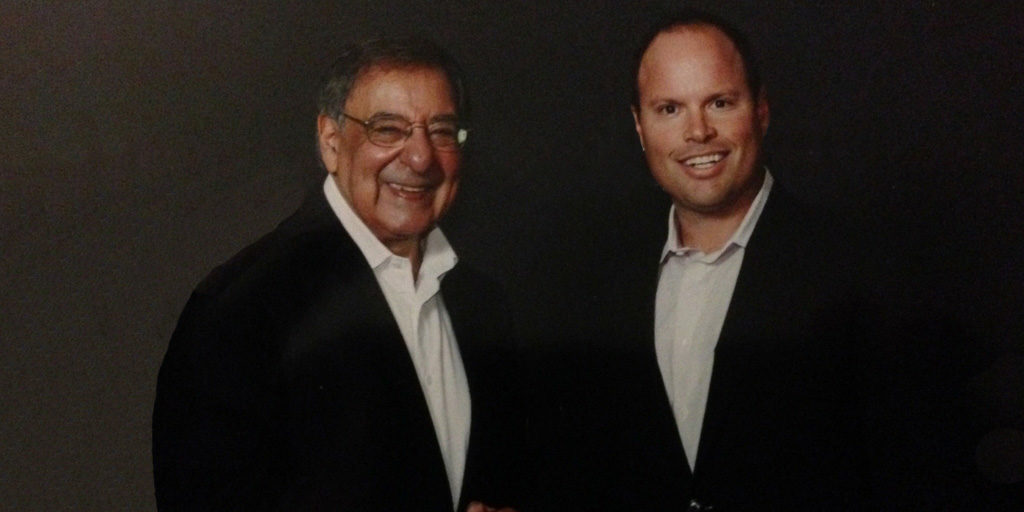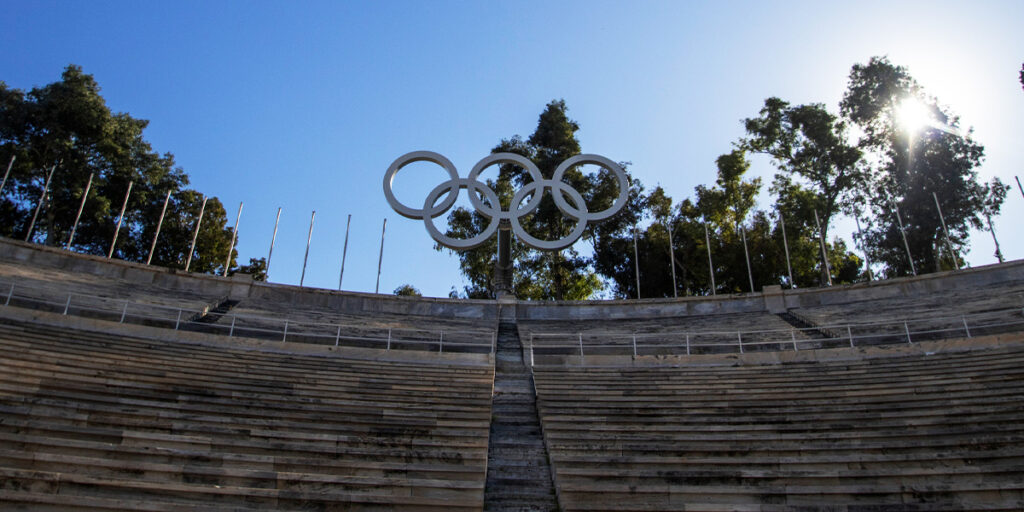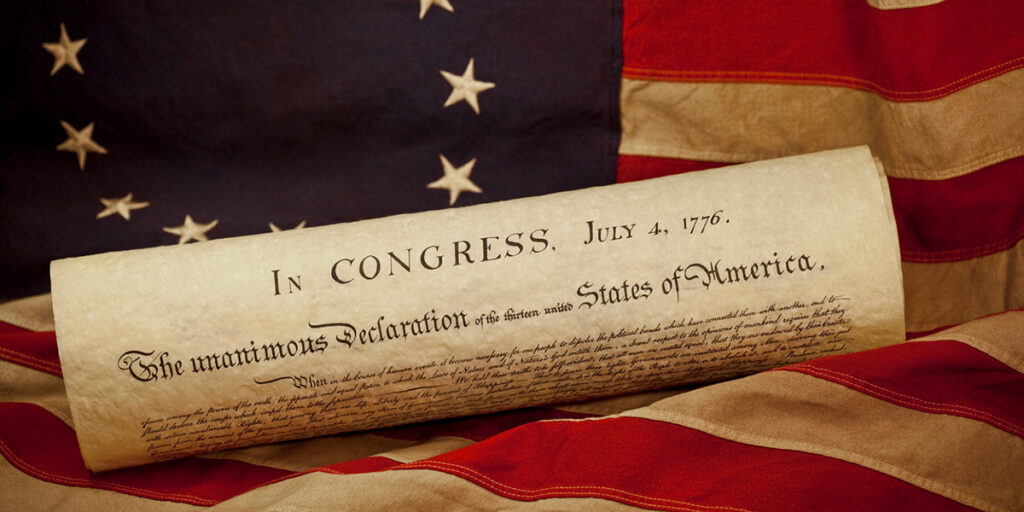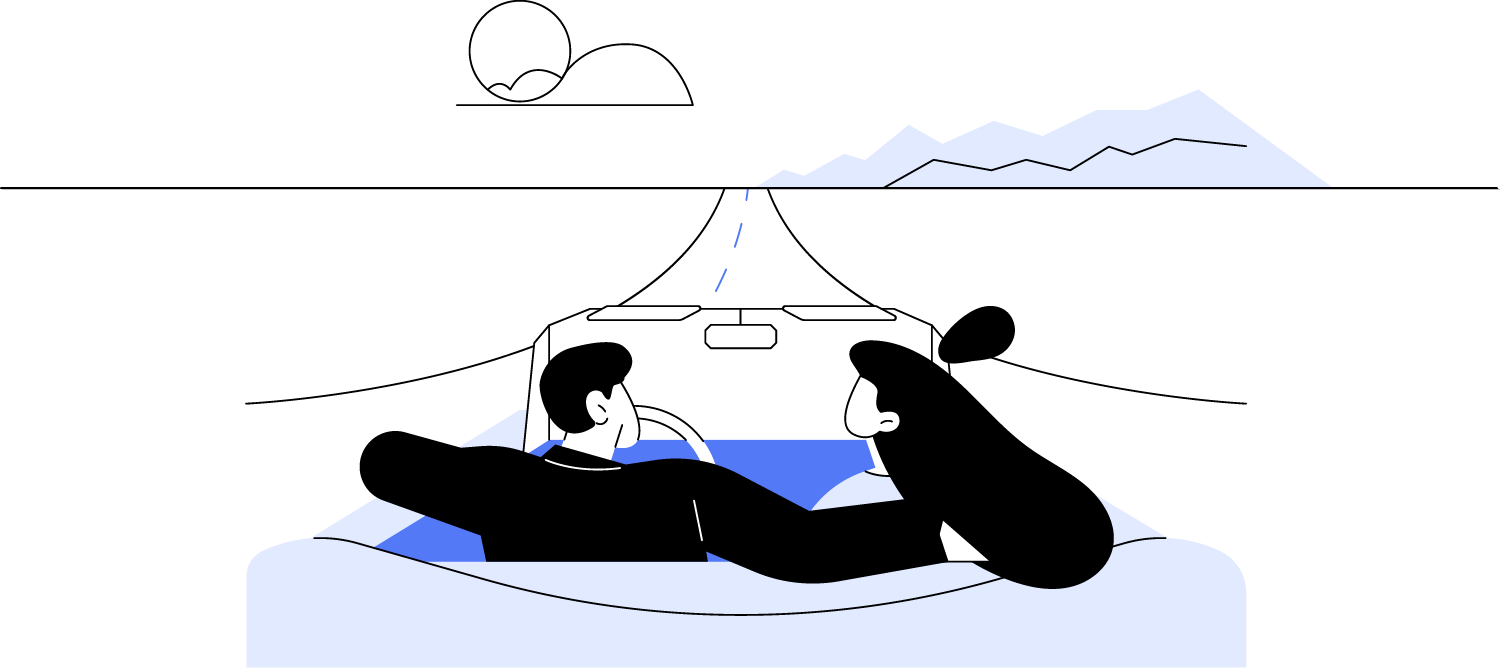Planet Earth is a complicated place. It’s home to nearly 8 Billion humans, in addition to countless other life forms. It’s a Small World with big challenges. No doubt, there are laughter and tears with hopes and fears. There’s so much that we share, but we as a people aren’t always fully aware. Respect and understanding of issues and differences make our Small World special. Education is so important. It’s the foundation of a healthy society. Understanding the why really matters. One would have thought that a global pandemic would bring the people of Planet Earth closer together in pursuit of a common cause. Unfortunately, it was quite the opposite. The divide widened.
Part of what I enjoy about being a Market professional is the constant challenge of having my finger on the pulse of Planet Earth. The Market is one big living thing. It reflects the wisdom of crowds. That constant learning and anticipation presents challenge and opportunity. Things move faster than ever in the Digital Age. Information moves at the speed of light. Knowledge doesn’t. It’s a constant effort to keep pace. Research and strategy sessions are like bootcamps for the brain.
This week I attended a session with some of our nation’s smartest thinkers on Geopolitics and Foreign Policy. It was hosted by Former CIA Director and Secretary of Defense Leon Panetta. On the panel were Admiral Mike Mullen, Former Joint Chiefs of Staff; Michèle Flournoy, Former Under Secretary of Defense for Policy; and John Bolton, Former National Security Advisor and Ambassador to the United Nations. The subject matter was plentiful. The panel had much to say.

The first question posed was directed at the trend of America withdrawing from the rest of the world. Is the world better off with America First or America Back? The panel members were in agreement that the United States has an important role as the leader of the free world, but its current state of political divide has been sending a very confusing message to the rest of the world. Trust is fraying. Everyone agreed that China is America’s greatest threat. The world order has been transitioning from having a lone Super Power in the post 9/11 era, to a bifurcated future with a less stable, predictable and unified United States on one side and the emergence of the Chinese Super Power on the other. The group agreed that the United States needs to shore up its own foundation; Politically, Economically and Socially.
China presents a threat like never before seen in our nation’s 245-year existence. Many draw comparisons to the Cold War with the Soviet Union, but the Soviets were never an economic threat. It was a war of ideology with military implications. China has certainly built up its economic might, getting stronger and more influential every day. But China’s goal is not ideological. It’s about dominance. China aims to dominate the Digital Age. It wants to be the undisputed leader economically, technologically and ultimately, militarily. It’s made massive investment in Artificial Intelligence and machine learning. The current situation has the 2 economic powers trying to stir the rest of the world in opposite directions.
President Trump proved that being tough on China would get their attention and was popular with the American people. Congress is moving with increasing urgency on bipartisan legislation to confront China and bolster US competitiveness in technology and critical manufacturing, with the Senate poised to act within weeks on a package of bills. Bolton, Flournoy and Mullen all agree that the rest of the world does not want to be dominated by China.
Ambassador Bolton, who served as President Trump’s National Security Advisor, said the 45th President did tremendous damage to American foreign policy, which is now being cleaned up. Needless to say, there is no love lost between Bolton and Trump. John Bolton said he did not vote for his former boss nor Joe Biden in November. He did say that he supports Biden’s initial approach to foreign policy, specifically towards China and Europe. Bolton said that “Europe wants a stronger America to keep the rest of the world honest.”
Admiral Mullen said that despite all of the challenges around the Globe, his greatest concern lives at home. The political division is beyond dangerous, and unfortunately, he doesn’t see an end in sight to the division. The political infighting has done a great deal of damage to America’s standing as a trusted and respected leader around the world. The point is, how can we seriously project our will to the rest of the world when our system’s stability is being constantly challenged at home? The world is watching closely. Many are fearful of what they see. Others are absolutely reveling in it with glee.
Every time there is a new American President, major powers set out to test him. That’s long been the case. For many of our adversaries, they are laying the groundwork for future bargaining in potential conflicts. Both Russia and North Korea played to President Trump’s ego, which they viewed as a major success. Their approach to President Biden is going to be much different, which they’re seemingly testing right now.
President Biden has stated his preference to engage the world from a position of strength. That is believed to be defined by America being on a stronger economic platform, post-Covid, and with stronger alliances. Of course, our adversaries prefer to engage the new President now, before the negotiating position is strengthened. The Biden administration should be most concerned with the growing collaboration between China and Russia, our 2 greatest adversaries. Both have expanded their military aggression at the same time, which puts a lot of strain on the new administration. North Korea is doing it too.
Russia continues to be a menace to the West. John Bolton stated, very matter of factly, that we allowed this to happen by failing to develop an organized, structural plan for the breakup of the Soviet Union 3 decades ago. A Marshall Plan model was required, but didn’t happen. He also implied that Congress has no understanding of what’s going on in Russia, and the rest of the world, for that matter. You’ve no doubt noticed that John Bolton rarely holds back with his opinions.
Vladimir Putin has certainly been testing our nation’s resolve. His relationship with President Trump still confuses many, and the extent remains unclear. Perhaps the biggest pivot point in Russia’s aggression was the annexation of Crimea in 2014. There was a lot of rhetoric but no consequence in response. Russia took it and didn’t look back. Ukraine is so symbolic. It has been estimated that there were as many as 100,000 Russians along the Ukraine border this week. That is near double the Russian force deployed there just 4 weeks ago. That was larger than the force the Russians deployed when they seized Crimea 7 years ago. President Obama was in the White House then. Joe Biden was Vice President.
President Joe Biden just announced a series of sanctions and punitive measures towards Russia. The White House made clear its actions were in response to “the full scope of Russia’s harmful foreign activities.” The Biden administration specifically highlighted what it said was Russia’s years long meddling in US elections. It also said US intelligence had “high confidence” that Russia was behind last year’s SolarWinds hack. That breach compromised at least 9 Federal agencies and about 100 private-sector organizations. It was classic espionage. The big question is what was left behind. Russia responded by expelling 10 US diplomats. 1 of them was John Bolton. He laughed, saying he didn’t have any trips planned to Moscow anyway…
Admiral Mullen said President Putin is very sensitive to his image amongst the rest of the world. Being stricken from the G8 really angered Putin, which he blamed squarely on President Obama and Hillary Clinton, who was Secretary of State. Russia has been flexing its muscles in hopes of earning respect on the Global Stage and maintain confidence and pride with the Russian people. Putin needs power. Moscow stated it sent military units to the country’s west, near eastern Ukraine, for military exercises, in a snap test of their combat readiness in response to NATO’s “threatening military activities.” However, in a surprise move Thursday, Russia’s Defense Ministry ordered its troops to begin withdrawing from the Ukrainian border. That could definitely help de-escalate tensions with the West. With parliamentary elections scheduled for later this year, Putin needs to retain the support of the Russian people. Incomes and quality of life have been on the decline in recent years, particularly due to falling Oil prices on top of the pandemic. Russia is heavily dependent on fossil fuels. Just this week, Putin announced plans to drive up spending on health-care, provide more financial aid to families and fund modernization of regional infrastructure.
The question of Iran and a return to the JCPOA (Joint Comprehensive Plan of Action) was posed. Michèle Flournoy said that eventually, she sees it happening. Iran’s economy has been crippled by sanctions. But the nation needs to cease its terror activity within the region. Interestingly, Iran has an election this Summer. John Bolton is concerned that the Biden administration is too desperate to do a deal with Iran, calling it a “fool’s errand.” Mike Mullen acknowledged there is no easy answer and Iran is not to be trusted. Transparency is required, which currently, there is none. The JCPOA was far from perfect, but provided some transparency. He also added that Israel is playing a significant role in diplomacy, having never liked the Iran deal from the get-go. Of note, the panel members all found it telling that Iran remained at the negotiating table despite the outage at the nuclear facility, presumed to be at the hands of the Israelis. Iran desperately needs relief from the sanctions with the election ahead.
Another controversial move was announced this week, which is the withdrawal in Afghanistan scheduled for the 20th anniversary of the September 11th attacks. The longest war in American history is finally coming to an end. There was no easy answer here. Importantly, last year the Trump administration announced the withdrawal was scheduled to take place this coming May. Biden embraced the withdrawal and simply pushed out the timing. The United States went to war because Afghanistan was a safe haven for terrorists. Osama bin Laden and Al Qaeda members hid in the Afghan mountains for years plotting attack after attack. Unfortunately, 20 years later, a safe haven for terror, it remains. The Taliban are expected to take it back over. John Bolton supports ending the war, but not abandoning Afghanistan. He points out our military presence still in Germany, Japan and the Korean peninsula. We have a template for that.
How does the United States avoid never-ending wars? This is perhaps the most difficult question the panel tried to answer. It requires clear strategies and defined national interests. Everything is marked as a “National Security Risk” these days. That’s how you get attention. But after a while, it loses its urgency. Then complacency sets in. That’s where danger lies; Complacency. Diplomacy has not worked with North Korea or Iran. John Bolton attended the Trump-Kim summit as National Security Advisor. He said that diplomacy failed because it was never serious from the get-go. It was all about showmanship, and both leaders were in it for image alone. The fact remains that any denuclearization of North Korea has to go through Beijing. But Kim won’t give them up. Nuclear warheads are all Kim has. “They’re his only ticket to the dance,” as Bolton said. “If obtained, North Korea (as well as Iran) would sell nuclear weapons to anyone for a price.” The North Korean regime has proven they’re really, really good at maintaining power and sticking around. That’s all they care about, with supreme focus.
To close out the session, each panel member was asked what they believed was the most dangerous threat for the United States. All 3 fear most the threats from within. Here are their responses:
Bolton: A lack of understanding and an inability to act coherently.
Flournoy: A lack of investment and long-term thinking with our allies.
Mullen: Ourselves. “If we don’t figure out how to move forward together, from the inside out, we are in real trouble.” Covid exposed all of our nation’s vulnerabilities. And they’re still there.

Another sign of economic recovery: Carbon emissions are up, substantially. One of the benefits of the Global lockdown in 2020 was the plummeting reduction of greenhouse gases. Emissions fell nearly 6% in 2020, the largest percentage decline since WWII ended. Well, that trend is over. Emerging-market nations tend to opt for the cheapest sources of fuel. Coal is one of them. And it’s really dirty. China is expected to account for over half the coal consumption this year. The Paris accords treat China as a developing country, despite the fact that it’s the 2nd largest economic power behind the US. That allows China more time to lower emissions. It’s one of the biggest flaws in the agreement. Conversely, America consumed more renewable energy than coal last year for the first time in a century and a half. Still, the US and China are by far the 2 largest greenhouse gas emitters. Just this week, the 2 economic Super Powers agreed to work together in setting more ambitious goals to address Climate Change. China has a stated goal of having over 1/4 of its energy consumption come from non-fossil fuels by the end of the decade.
This week marked the 51st anniversary of Earth Day. President Biden announced his latest steps against climate change as he convened a virtual summit with 41 world leaders. The President pledged to cut US greenhouse gas emissions by at least half by the end of the decade. Emissions cuts are expected to come from power plants, automobiles, and other sectors across the Economy. The target would nearly double the US commitment under the Paris Climate agreement, when then-President Obama vowed to slash emissions by 26-28%, compared with 2005 levels. Japan raised its target for cutting emissions to 46% by 2030, up from 26%. Canada and Brazil also accelerated their commitments. Most countries did not offer new emissions goals. Chinese President Xi reiterated China expects its carbon emissions to peak before 2030 and the country will achieve net-zero emissions by 2060. Xi said China would gradually reduce its coal use from 2025 to 2030. Without China and India completely on board, fighting Climate Change will be an uphill battle. They’re the 2 most populous countries, by a longshot. Corporate America has gotten on board with the climate initiative. 90% of companies in the S&P 500 now publish sustainability reports, up from 20% in 2011, suggesting the trend has gone mainstream.
Stocks had an expected surprise Thursday when the White House announced it proposes raising the capital gains tax rate to the ordinary earned income rate for income over $1 Million, nearly doubling it. Yes, I wrote “expected surprise” for a reason. 2 things: 1. President Biden campaigned on this all last year. This should come as no surprise. 2. There is next to zero chance it passes in Congress. The major indexes immediately fell on the news, but were only down 1%. Those losses were largely erased on Friday, hitting another fresh, all-time high. If the Market really believed the prospects of doubling capital gains tax was high, there would be a 10-20% correction. It took it very much in stride. That said, taxes are going to go up. The only questions are when and by how much? That’s going to be an ongoing issue for the rest of the year and spill into 2022, another election year.
Thanks for sticking with me throughout this literary trip around the world. There is certainly a lot to take in. Bootcamp for the brain is my phrase. It all matters. The Market has had a longstanding tendency of ignoring geopolitics. Complacency can kick in. But then it reacts, when you least expect it. It’s just the way it is. As I mention to my Team, time and again, it’s so important to understand the what, the why, the how and the who, in everything we do. We are always on fact-finding missions. Planet Earth is indeed a complex place. But it’s our home. It’s the only one we’ve got. We try to make the most of it. And leave it in a better place than we found it, for generations to come. Providing value and making a positive impact on other people’s lives, that’s our professional purpose. In this age of cynicism, it’s a good reminder of just how small the world really is.
There is just one moon, and one golden sun. And a smile means friendship to everyone. Though the mountains divide, and the oceans are wide; It’s a small world after all.
In case you were wondering, the Sherman brothers wrote the song for Walt Disney in the wake of the Cuban Missile Crisis. It’s believed to be the most played and most translated song in history.
Have a nice weekend. We’ll be back, dark and early on Monday.
Mike







